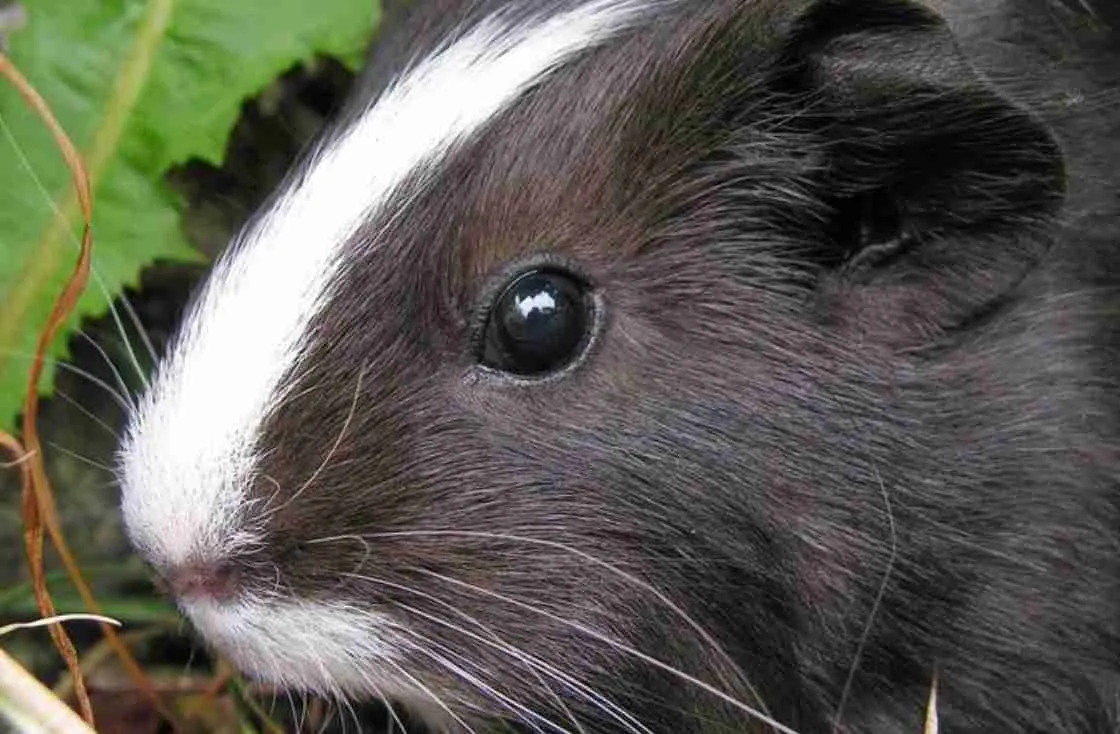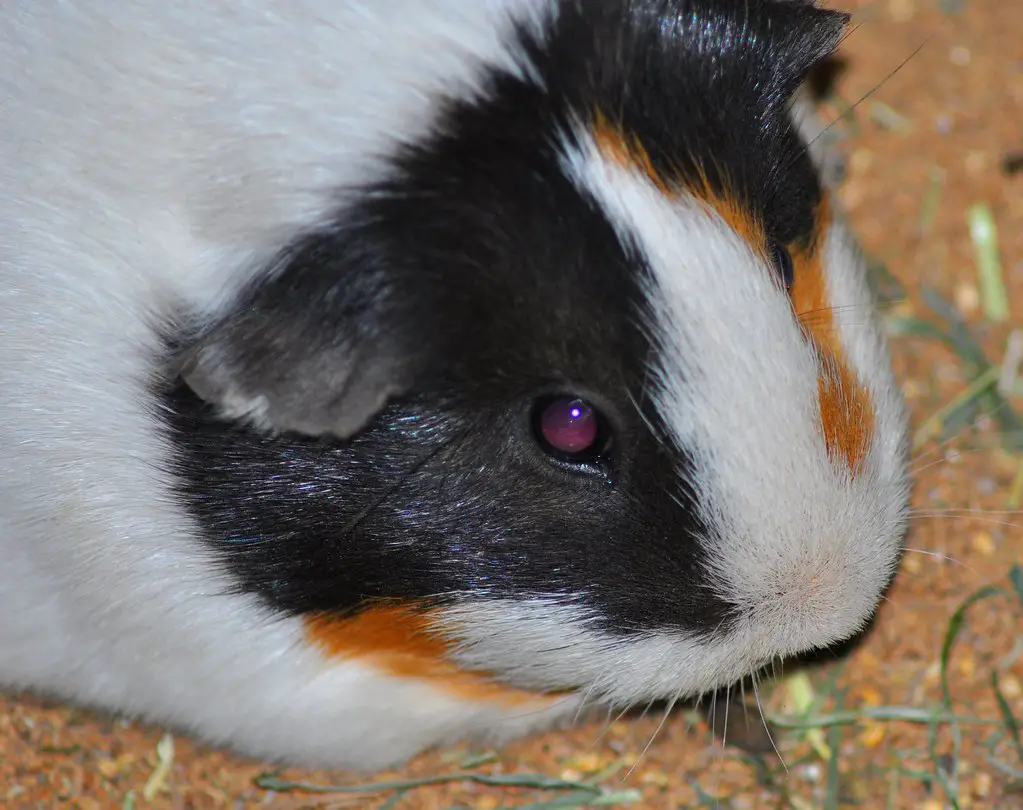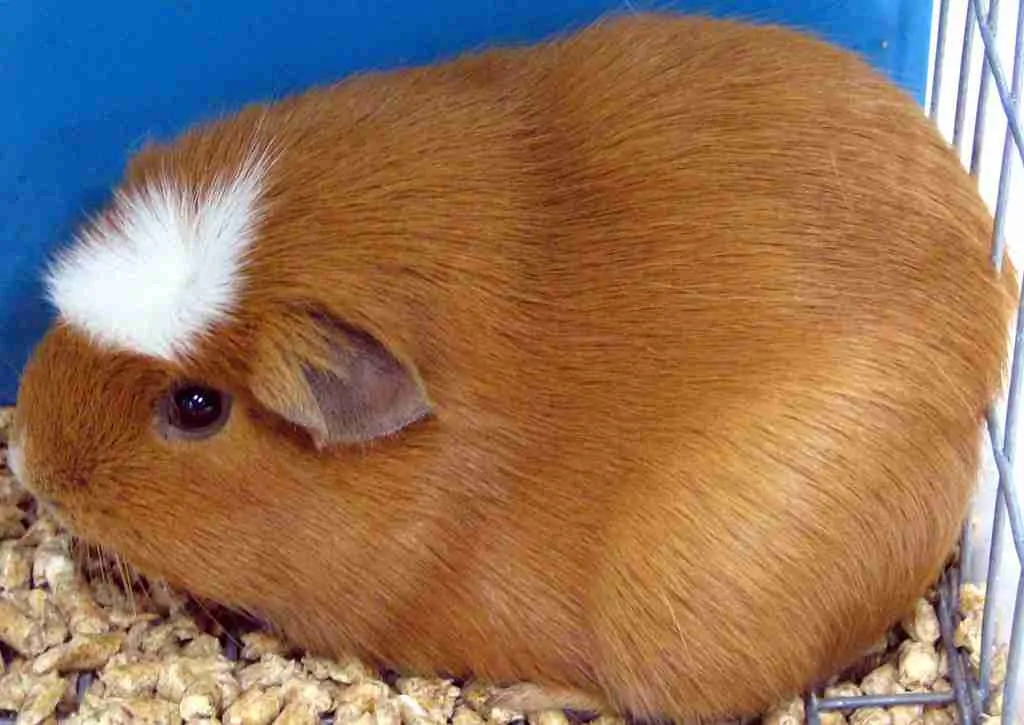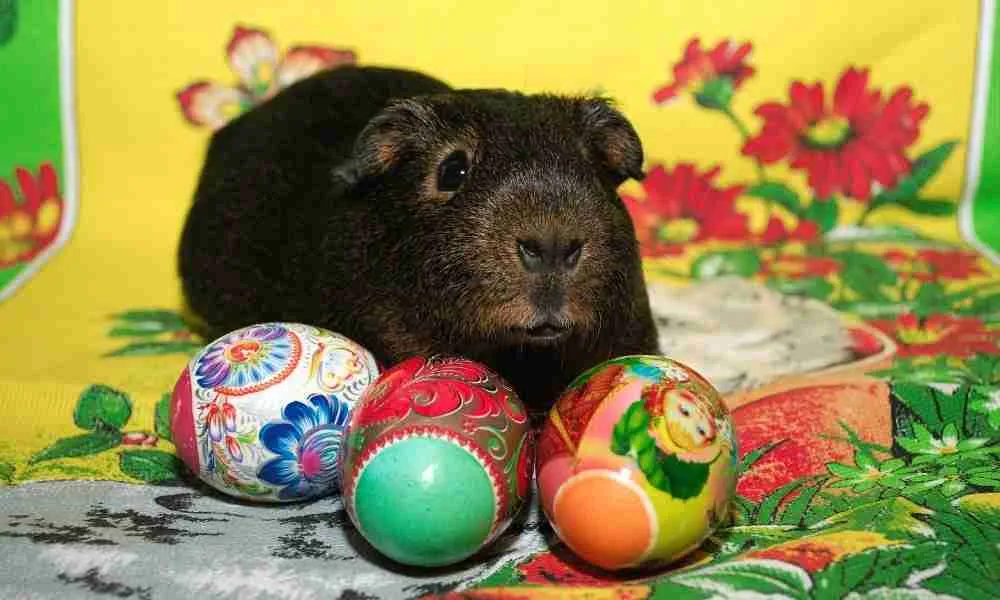At times, you get confused about which color your guinea pig will like or hate. In fact, you might want to know your pet’s favorite color.
Speaking of colors, are guinea pigs color blind?
No, guinea pigs are not color blind and they enjoy color as much as you do. So, all those times you spent thinking for the right color gives you an A+!
Color blindness is a genetic condition or something that is passed from parents. It causes you to have a hard time interpreting different colors.
The bottom line, guinea pigs can see different colors but they have poor vision.
Right now you may be wondering, “Why do guinea pigs have poor eyesight?”
Finish this article so you would know what color of toys you should buy more.
Table of Contents
Why Do Guinea Pigs Have Poor Eyesight?

Now that we know that guinea pigs are not color blind, it is time to discuss their poor vision. Their poor vision affects everything about our beloved guinea pigs.
As they say, when one sense is not working, other senses will be enhanced.
Guinea pigs have limited eyesight. They see close things clear and far objects blurry. Because of this, they are more prone to injuries.
This condition may be due to the guinea pig’s absence of depth perception. Depth perception pertains to the difficulty of seeing things in three dimensions which includes the width, length, and depth.
As a responsible fur parent, it is your role to make sure that your guinea pig’s cage is vision-friendly.
Here are some tips on how you can ensure your pet’s safety:
- Always keep their cages closed at times to prevent escaping.
- Do not leave them unattended to avoid unwanted injury.
- Do not put them on top of tables as they may fall.
- Practice playing with them seated down on the floor.
Sounds laborious but trust me, your guinea pig will enjoy the attention. Guinea pigs are sociable and happy animals. They need large areas because they love to run and explore their place.
Moreover, this will strengthen your bond to your furry pet. Can guinea pigs be taught tricks? Yes, guinea pigs are considered to be clever animals. If you are patient enough, teaching them tricks is just a breeze!
Can Guinea Pigs Get Blind?
Guinea pigs can get blind. Blindness of guinea pigs can be the result of many factors and one of which is old-age. Also, there had been accounts wherein a newborn guinea pig can’t see.
Another fun fact about guinea pigs! Guinea pigs’ pregnancy may last for 59 to 72 days. When a baby guinea pig is born, it is fully-formed and ready to eat and run. Wow!
Can a fur parent prevent blindness? No, you can’t prevent a natural occurrence from happening. However, you can do something to ensure a sight-safe environment for your poor-sighted guinea pig.
Now, let’s learn what causes guinea pigs to go blind. Guinea pig blindness may be caused by old-age, inborn, and health conditions such as cataracts or diabetes.
A healthy guinea pig’s eyes should look clear, bright, and moist.
In addition, getting poked in the eye accidentally may also be blamed for blindness. Things like hay, wire, toys, or even their mate’s toenail can injure their vision. So, you better check their cages always!
With your bare eyes, you can easily spot if your guinea pig has a vision problem. A good marker will always be their eyes. If you observe milkiness in the lens, suspect a cataract.
However, you might mistake this to a milky-white substance secreted from the corner of their eyes. Don’t worry because this is perfectly normal and safe! Your guinea pigs use this substance for their grooming.
Guinea pigs are naturally a bundle of energy. Normally, guinea pigs would react excitedly when you come near them. So, if you noticed that they are still, your guinea pig may be blind.
If you are unsure about your guinea pig’s vision, you can always visit a vet to verify its eye condition.
As you know by now, guinea pigs love to go around exploring. But, as they say, everything excessive is not normal. Confused guinea pigs who go around circles may also be a warning for eyesight going blind.
If all of the markers apply to your guinea pig, taking the right measure is the best thing to do. Remember, taking care of a pet is a long-term journey.
You need to provide the best care possible despite unwanted events such as going blind.
Fortunately, guinea pigs’ blindness is not a major issue to them because they have bad vision in the first place. Guinea pigs innately depend on their other senses such as their smell and touch.
Both wild and captive guinea pigs would sense danger and become jumpy at times.
With this, I recommend that you keep your blind guinea pig inside.
Consider putting them in a place with less factors that may startle them; a safe quiet place in a room will be fine. Don’t place them near a window, door, or loud objects.
In addition, guinea pigs in captivity may need extra attention. They will be needing a larger play area and vision-friendly toys. As a responsible owner, you need to keep your eyes to them while they play.
Furthermore, you can make life easier for your furry friend by avoiding too much rearrangement of their cage. This will allow them to memorize where their hides, toys, food dish, and water are placed.
Also, you may consider getting a second guinea pig which can guide your blind furball.
Quick tip: Give a warning to your guinea pig before holding a blind guinea pig. A simple tap to their cage or speak to them is enough. By doing so, they will not be scared and run away when you try to touch them.
What does a guinea pig’s vision look like?
Aside from having poor vision, another interesting thing about guinea pig’s eyes is its location. Their eyes are placed on the side of their faces allowing them to see from a 340 degree angle. That is almost 360 degrees!
Furthermore, this unique location of their eyes makes it appear that they have cross-eyed look. Guinea pigs do not have the ability to see straight.
They have good peripheral vision instead.
“But why does my guinea pig stare at me?”- That’s your next question, right?
Guinea pig stares due to many reasons. They can be bored, dozing off, lonely, or uncomfortable. So, you need to do something to make your furball happy.
Spend more time with them. Guinea pigs love attention! You can either play or hand feed them. Try feeding them their favorite treats such as fresh vegetables or hay.
And yes, your guinea pig can recognize you! They can even recognize their name. That is how clever these animals are. With the right amount of training, guinea pigs can do some tricks, recognize voices, and respond to their owners.
Although, you need to wait for a certain time for training. Guinea pigs learn a little later in their lives. If you are determined to teach your furball, start training them when they are nine to ten months old.
On top of all that, guinea pigs can see 33 images per second. This ability of theirs prevents them from having blurry vision when they turn their heads. Cool, right?
Can guinea pigs see well in the dark?
No, guinea pigs can’t see well in the light much more in the dark. Guinea pigs have bad eyesight which does not allow them to perceive dimensions and things well.
Placing them whether in an indoor or outdoor set up is okay as long as proper husbandry (proper care and housing given to the animal) is provided.
Although their cage setup will not affect them, guinea pigs seem more cozy in a dark place. This is because guinea pigs are considered as prey animals or animals that are being hunted by predators.
A dark place lets your guinea pig hide.
In layman’s terms, guinea pigs love dark places simply because they feel secured in the dark. Guinea pigs stay alert even in the dark.
They tend to be more sensitive to sound and movement even when they are sleeping or hiding.
If you are going to ask if you can put a night light beside your guinea pig’s cage, the sweet answer is you can’t. A night light may confuse your guinea pig’s body clock thinking that it is still daytime even though it’s not.
This is bad and may trigger health conditions.
I understand that putting a night lamp may add to the aesthetics of the room but, remember, it is not beneficial and necessary to your pet.
Instead, just try to adapt to the natural timeline for your pet and everything will be good.
Things You Can Do To Copy Their Habitat
Speaking of adaptation, always put in mind that you are in control of your pet’s environment. As much as possible, try mimicking their natural habitat for their welfare.
Here are 4 things you can do:
- Follow the natural time for your pet to adapt.
- Do not put foreign objects because this might harm them.
- Give them proper hides and toys.
- Spread their food in their area to promote foraging.
Foraging is a good way to imitate their natural behavior. During this activity, your guinea pig searches around for food.
As previously mentioned, you are not encouraged to reposition the things inside your pet’s cage. Why? Mainly because guinea pigs rely on their sense of touch. Familiarization with their environment is the edge of your pets.
Guinea pigs have a sharp memory. This enables them to roam safely even at night because they know their area well.
This is also the reason why blind guinea pigs can function well even with a poor vision.
FAQ:
Listed here are answers to some of the usual questions you have about guinea pigs’ eyes and color:
What Colors Can Guinea Pigs See?

Talking about colors, guinea pigs have dichromatic color vision. Dichromatic color vision is described as having only two out of the three basic color mechanisms functioning.
This type of vision is usually common to animals especially to nocturnal animals or the animals that are active at night.
Even with a bad eyesight, guinea pigs can actually perceive colors. Guinea pigs can distinguish yellow, red, blue, and green- particularly green. These colors are usually the colors of their diet, so make sure to feed them more of these colors!
What Is A Guinea Pig’s Favorite Color?
It is difficult to tell you what your guinea pigs’ favorite color is. Just like us, humans, we are unique in our own way.
However, with the limited number of colors seen, it is not a surprise to know that your favorite fur ball has its preferred color.
It will now be your challenge as the dutiful fur parent to find out your guinea pig’s favorite color. Try to mix-and-match yellow, red, blue, and green to discover what makes your pet happy. That’s guaranteed!
I would love to recommend that you make your pet’s area as colorful as possible.
Let me give you some tips:
- Use a bright yellow or red animal-friendly paint for the walls.
- Put rainbow-colored decorations/toys in the cage.
- As much as possible, do not use dull colors. This will just bore your pet.
- If you are feeding a green vegetable, use a plate in another color to show contrast.
A gentle reminder, what works for one, may not work for the other! Don’t get too pushy with your pet.
Another great tip is to take time to know their personality. In this way, you will spend more time understanding your guinea pig’s likes and dislikes.
What Is The Rarest Guinea Pig Color?

The rarest guinea pig color is the White Crested guinea pig. This crested guinea pig is almost similar to American guinea pigs. The only notable feature they have is the crest or twirl on top of their head.
White crested guinea pig is rare but that doesn’t mean it is unavailable. You can’t find this breed in pet stores for sure. If you want to find one, look for trusted breeders around your area.
Guinea pigs may have different color combinations. At most, three colors may appear to a single guinea pig. The three most dominant color series are black, red, and white.
Final Thoughts
In this article, it was clarified that guinea pigs are not color blind, rather, they see a limited number of colors since they have dichromatic color vision.
Dichromatic color vision means that there are only two out of supposedly three color mechanisms functioning.
In addition, you have also learned about the possibility of your guinea pig’s blindness. Blindness may be caused by old-age, health condition, or external events such as accidents.
Aside from that. you learned the basic how-to’s to visually impaired guinea pigs.
Remember, whatever color or breed your guinea pig is, doesn’t make it less of a pet. Treat all pets the right treatment they deserve.
Did you enjoy this article? Why don’t you share this to another fur parent so they may learn some handy tips?
